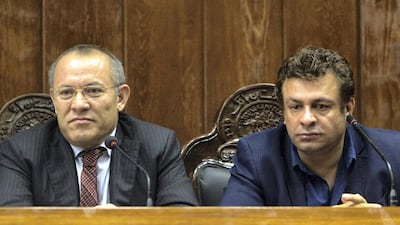At the height of his powers, Sherkhan Farnood was a free-wheeling poster boy for Afghanistan's surging economy.
The owner of at least 16 luxury Dubai properties and a regular fixture at the tables of the international poker circuit, he had come a long way from running a humble informal ‘hawala’ money transfer from his university dorm.
Yet the former chairman of Afghanistan's largest private bank last week died in an Afghan prison serving 15 years for money laundering and embezzlement.
His death marked the end of an extraordinary rise-and-fall that saw him ride the chaos of post-Soviet Moscow and then return to found Kabul Bank, before orchestrating a fraud that nearly ruined his homeland.
The demise of Kabul Bank was proportionately one of the largest financial scandals ever and became symbolic of the West's frustration at the crony capitalism of Hamid Karzai's government. The brazen corruption behind the scandal shook American faith in its nation-building ambitions.
Farnood died at the age of 57 from an undisclosed illness while being held in prison north of Kabul, Tolo News reported.
______________
The collapse of Kabul Bank:
New Afghan president reopens probe into Kabul Bank scam
Kabul Bank to auction villas on Palm Jumeirah in Dubai
Kabul Bank's problems point up Afghanistan's challenges
______________
The former banker was an Uzbek born in the northern Afghan province of Kunduz and he relocated to Moscow when the Soviets invaded in December 1979.
While studying at the Moscow Textile Institute, he began his own money transfer between Russia and Kabul. Trade took off in the 1990s chaos of post-Soviet Russia, but Farnood also fell foul of the law.
Fleeing charges of illegal banking, money laundering and organizing a crime syndicate, he set up in Dubai where he opened the Shaheen Exchange hawala near Dubai's Gold Souk.
When America toppled the Taliban from his homeland in 2001, he was quick to see the opportunities back home.
In the Wild West atmosphere of the Afghan economy, a wanted notice from Interpol apparently did little to stop him picking up a banking licence. In 2004, Kabul Bank was founded and with a clique of politically connected shareholders, including Mr Mahmoud Karzai brother of the then president, and Haseen Fahim, brother of the then vice president, it quickly grew.
Farnood's connections meant he was able to persuade the government to give Kabul Bank responsibility for Western-funded payroll accounts for the country's soldiers, police and civil servants. Overnight the bank began taking large, regular deposits of cash.
But while the bank was often cited as proof the country was recovering with Western help from the Taliban rule of the 1990s, it was in fact just a giant Ponzi scheme.
Executives were using the deposits to make huge off-the-books loans to a small circle of shareholders, political figures and their companies. There was little expectation they would be repaid.
Years later, a forensic audit of the bank would reveal the jaw-dropping scale of the fraud.
Staff were ordered to forge documents to create proxy loans under fictional names, or the names of cleaners and drivers. Around 92 per cent of the bank's loan portfolio, or $861 million, was ultimately made out to just 19 individuals or companies.
A team of 10 airline pilots were on the payroll with the task of apparently helping smuggle vast sums of cash out of the country via Kabul airport.
Farnood poured his own share into Dubai. His properties included several multi-million dollar villas on the Palm Jumeira Island and two tower blocks.
The investigation alleged Mahmoud Karzai received $30.5 million (Dh 112 million), though he disputed that total and denied any wrongdoing.
By 2010, cracks were showing in the huge pyramid of fraudulent loans and the bank was being rocked by a power struggle. When US officials approached Farnood about a related investigation, the poker player gambled and told all.
As the wrongdoing went public, losses were estimated at $900m, or 5 per cent of the country's GDP. There was a run on the bank and it needed a bailout to survive.
Yet if he was expecting leniency, his final gamble appeared to have failed. While his first conviction alongside the bank's chief executive officer, Khalilullah Frozi, saw a five-year sentence, that was trebled on appeal. Both said they had been scapegoated by politically better-connected associates.
His death this was “a sad end to a sad story”, said Saad Mohseni, the mogul who runs Afghanistan's biggest media group.
“Kabul Bank almost brought Afghanistan to its knees [and destroyed the nation’s reputation].”

